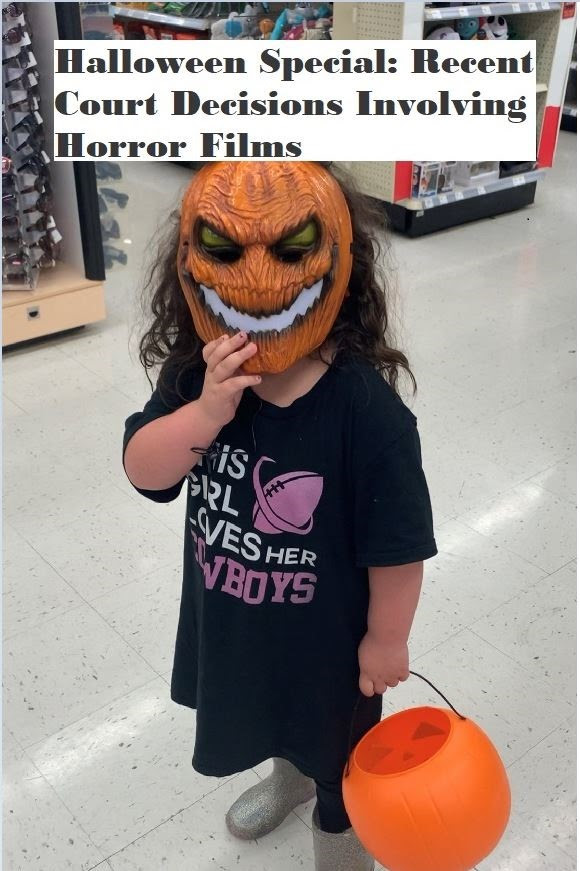Scream
Late last month, Charlotte Hornets guard Terry Rozier won a lawsuit over similarities between Rozier’s “Scary Terry” clothing line and the “ghost face” mask used in the 1996 film Scream.
Easter Unlimited, a costume company that manufactures the ghost face mask and had granted Dimension Films a license to use the mask in Scream, sued Rozier in 2018 for trademark and copyright infringement.
The US District Court for the Eastern District of New York granted summary judgment to Rozier, known as “Scary Terry” due to his ability to score. Rozier had decided to associate a “serial killer mask” with his Scary Terry persona in part due to the practice of referring to certain professional athletes as “killers.”
Because Rozier loved the movie Scream, he asked for a cartoon image of himself wearing the mask from that movie and his Celtics uniform.
Although Rozier had admitted copying the mask and the court assumed for purposes of the summary judgment motion that Easter Unlimited had a valid copyright in its mask, the court found that Rozier’s use of the mask did not infringe Easter Unlimited’s copyright.
Rather, said the court, Rozier’s use of the mask was a “fair use.” The court held that Rozier’s “use of the Scream mask to create a humorous embodiment of an NBA basketball player who was known as a ‘killer’ scorer … transformed the Ghost Face Mask with new meaning, expression, and messaging.”
The court also found that Rozier’s “humorous and whimsical reimagination of the Ghost Face Mask” constituted both parody and satire.
With respect to Easter Unlimited’s trademark claims, the court held that there is no likelihood that consumers will confuse Easter Unlimited’s mask with Rozier’s Scary Terry merchandise, and thus no infringement.
Friday the 13th
Victor Miller wrote the screenplay for Friday the 13th, released in 1980, pursuant to an agreement with Manny Company. In 2016, Miller notified Manny Company and Horror Inc. (which had acquired the rights from Manny) that he was invoking his right to reclaim his copyright pursuant to section 203(a) of the Copyright Act.
That section of the Copyright Act allows authors (or if they’re no longer alive, their heirs) to terminate certain grants of copyright assignments and licenses of “any work other than a work made for hire” after a specified period of time when certain conditions have been met.
Manny and Horror argued that Miller was Manny’s employee when he wrote the screenplay, so the screenplay was a work-made-for-hire, meaning Miller had no right to reclaim his copyright.
After reviewing the pleadings, the district court granted summary judgment to Miller, finding that Miller had not been Manny’s employee when he wrote the screenplay. Manny and Horror appealed that decision.
The US Court of Appeals for the Second Circuit upheld the lower court’s decision. The appellate court explained that classifying a worker under the copyright laws may result in a different finding than classifying a worker under the labor laws, so the companies’ arguments that Miller was an employee due to his membership in the Writers Guild of America and signatory to that organization’s collective bargaining agreement were irrelevant.
Using the appropriate test for copyright cases, the court held that, even viewed in the light most favorable to Manny Company and Horror Inc., Miller was an independent contractor.
*********
Please feel free to contact us if you have any questions about these cases or if you need any assistance with intellectual property issues.
Photo by Colleen Lopez






